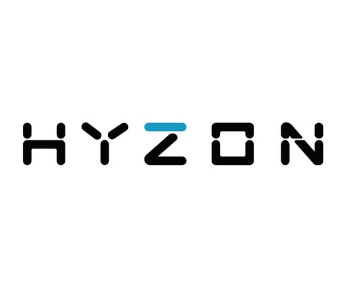Engineering360 News Desk | July 16, 2022
Hyzon Motors will team up with Schlumberger Limited to reduce emissions in upstream oil and gas operations with power generated by its heavy duty fuel cell systems.
Hyzon, a global supplier of zero-emissions hydrogen-powered and fuel cell electric commercial vehicles, announced today a joint development agreement (JDA) with Schlumberger, a provider of technology to the global energy industry.

Under the JDA, Hyzon will use its expertise in engineering and manufacturing high-power fuel cell systems for heavy-duty commercial mobility to co-develop zero-emissions fuel cell power generation solutions initially for North American oil and gas well construction for land drilling rigs, with opportunities for collaboration into other field operations in the broader oil and gas market. Hyzon’s technology is intended to be integrated into Schlumberger’s portfolio of intelligent power management solutions and powered by Hyzon. Currently in the initial phase of the JDA, the companies expect to demonstrate the first fuel cell power module in oil and gas field operations as early as Q4 of 2022, starting with powering an onshore drilling rig application.
Under the JDA, Schlumberger will also provide customer validation opportunities and will lead the anticipated commercialization of the product to existing and new customers. As an initial step, Schlumberger has already executed a Memorandum of Understanding (MoU) to integrate the fuel cell solution in Ensign Energy Services Inc. drilling operations within the next year.
The intelligent power management solution that Hyzon’s fuel cells will power is a direct replacement for the typical 4.0 MW of available diesel generators that power an oil and gas drilling rig today, meeting the same horsepower and footprint specifications of a 1.0 MW diesel generator on a high-spec North American land rig. A drilling rig powered completely by hydrogen fuel cell systems is projected to consume ~2.5 tons per day of hydrogen, which when fueled by zero carbon intensity hydrogen would eliminate 10,000 tons per year of CO2.
The versatility of hydrogen enables oilfield service companies and operators to use transportable fuel cell power solutions in a wide range of applications: to power entire drilling rigs, generate useful heat, fuel fleets for long-haul, heavy-duty transport, and more — all with zero emissions at the point of use. The solution will also be evaluated for deployment in many other hard-to-decarbonize power use cases such as remote industrial operations and critical grid and operations power supply.
“Hyzon’s fuel cell technology was purpose-built to withstand the challenges of heavy duty trucking; the durability, performance, and power required for that application provide the foundation for fuel cells to power Schlumberger’s oil and gas field operations,” said Parker Meeks, chief strategy officer, Hyzon Motors. “Hyzon’s proprietary fuel cell technology and manufacturing facilities allow us to adapt our current fuel cell offering to this new application, the first of many possibilities for high-durability, transportable power generation.”
Another anticipated benefit of the fuel cell power systems to well construction operations is elimination of generator noise, vibration and maintenance. With dependable, clean, quiet power production at the rig site, operators can minimize downtime while ensuring enhanced health and safety performance for people and the environment. This technology is ideal to enable drilling in areas that are restricted today due to diesel emissions and diesel generator noise levels, both of which would be mitigated with a hydrogen fuel cell power solution.
“Building a lower-carbon future while meeting the ever-growing demand for energy requires unprecedented accountability, newfound operational efficiencies, and early investment in promising technologies,” said Brian Winter, product manager for rig equipment, Schlumberger. “Schlumberger is excited to pilot Hyzon’s hydrogen fuel cell systems to power rigs and enable rapid drilling decarbonization today.”
